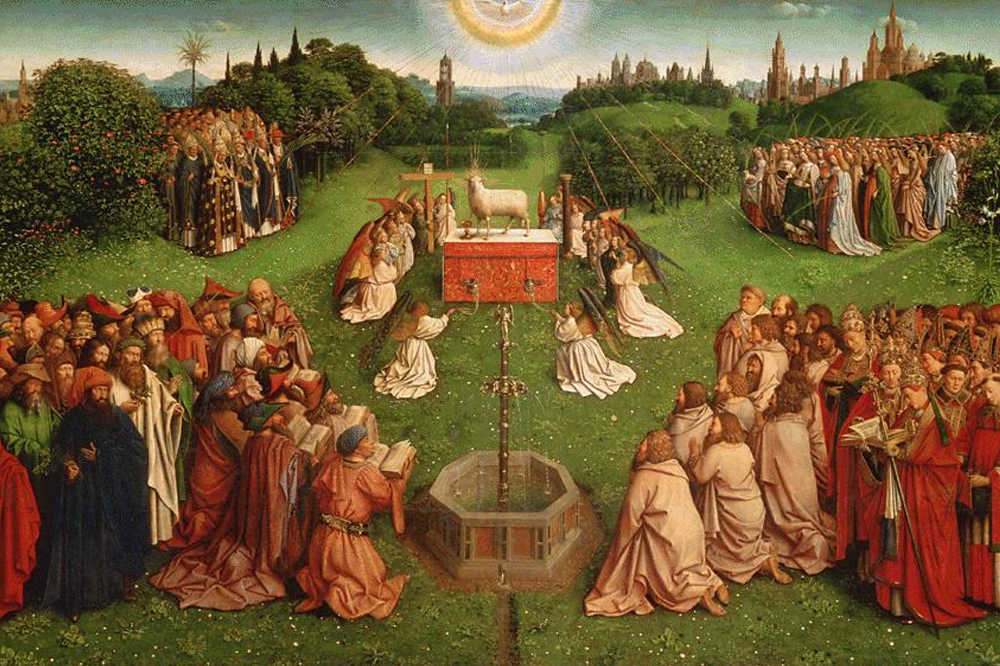Greetings. There is a lot going on at ACTI these days. Our spring series on Climate Change and Laudato Si’ got underway last week with a talk by Jeremy Pal. Dr. Pal—who was part of the Intergovernmental Panel on Climate Change that shared in the 2007 Nobel Peace Prize—updated students, faculty, staff, and members of the community on the current state of climate research, touching on both the causes and consequences of climate change. Today, award-winning journalist Naomi Klein will follow up by discussing her latest book, This Changes Everything, which makes the case the unrestricted, globalized capitalism is incompatible with both climate stability and social justice. Those themes should be familiar to Catholics, since they are at the heart of Laudato Si’, Pope Francis’s Encyclical on climate change. And at the end of the month ACTI is honored to host Fr. Sean McDonagh, well-known eco-theologian and advisor to Pope Francis during the drafting of the Encyclical. And while the spring series on Climate Change and Laudato Si’ contains some of the major events of the semester, we are also supporting visits by academics like Emmanuel Falque, Anne O’Byrne, and Fr. Mark Bosco, helping to spread the word about Bishop Gordon Bennett’s series on the Year of Mercy, and celebrating the appearance of Fr. Alan Deck’s new book, Francis: Bishop of Rome. A full list of our events can be found here. We’re also well into planning events for the 2016-2017 academic year and beyond. So keep checking the ACTI website for updates.
Of course, our spring series overlaps the beginning of Lent. Ash Wednesday falls on February 10th, and Lent runs until Holy Thursday and the beginning of the Triduum. This season is a period of reflection, prayer, penance, and atonement for Christians, and Catholics often mark it by adopting some form of spiritual discipline. Fasting, prayer, and almsgiving are all traditional Lenten disciplines; but many people—even people who may forego more traditional observances—chose to “give up” something for Lent.
Often, these Lenten observances come to resemble New Year’s resolutions, but with a slight “sacrificial” shade—rather than resolving to lose 10 pounds, start working out, or clear out the clutter in one’s home, people choose to give up sweets or alcohol, to abstain from television or Facebook, or other similar things. There’s much to be said about whether and to what extent such practices are in keeping with the spirit of Lent; but, in any case, the similarity to New Year’s resolutions adds to the predictability of common Lenten observances.
However, this past year suggests at least two less common foci for Lenten disciplines: the environment, and mercy. Last year saw the release of Laudato Si’, a document in which Pope Francis both extends and deepens the Catholic commitment to the environment. The Encyclical also connects climate change and similar environmental crises to longstanding problems with economic inequality and social justice, and connects all three issues to spiritual disorder. This suggests that reflecting on the themes of Laudato Si’ could be a productive practice during Lent. Pope Francis has also recently declared an “Extraordinary Jubilee of Mercy” during 2016, which also suggests possibilities for novel, less mechanical Lenten practices.
As Lenten sacrifices become more like New Year’s resolutions, they tend to become less meaningful. Many Americans resolve to lose the same 10 pounds every January 1st, and abandon that same resolution every February 1st. However, Laudato Si’ and the Year of Mercy suggest non-traditional topics for Lenten reflection and discipline, and such novel topics offer us the opportunity real spiritual growth.
Brian Treanor
Charles S. Casassa Chair and Professor of Philosophy
Director, Academy for Catholic Thought and Imagination
Loyola Marymount University
